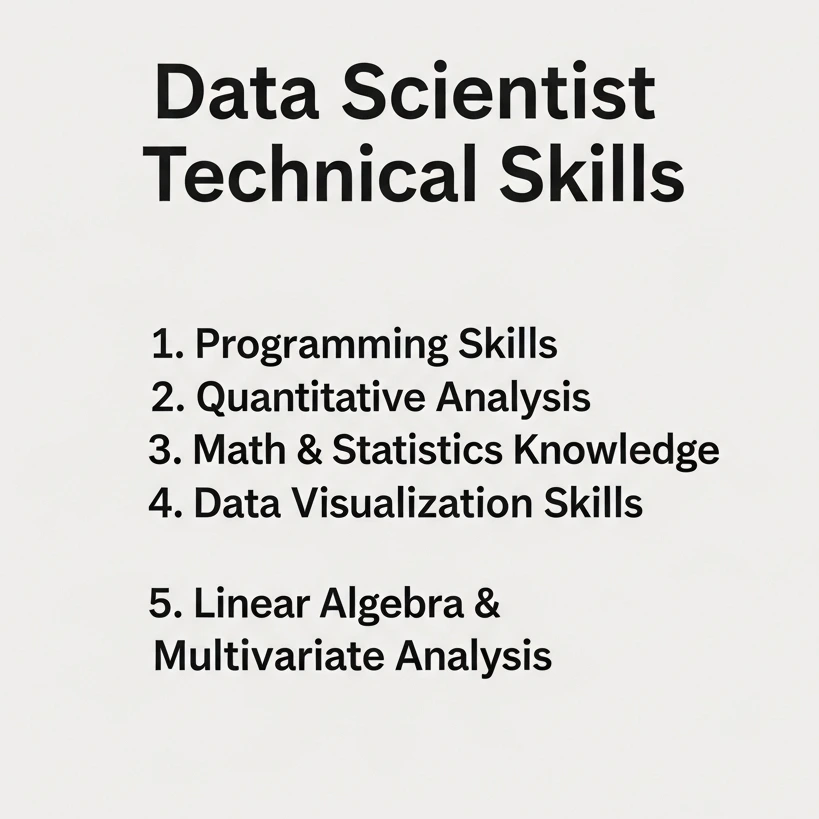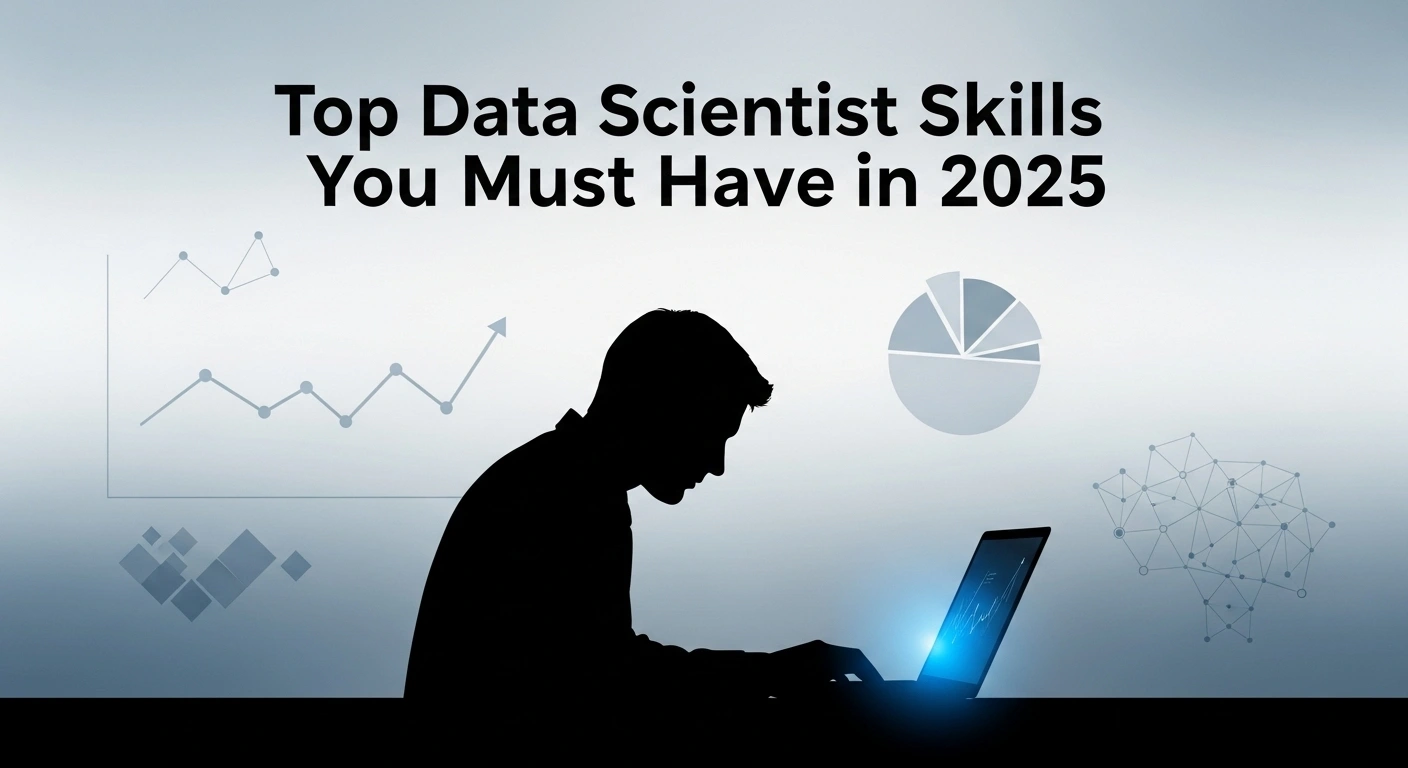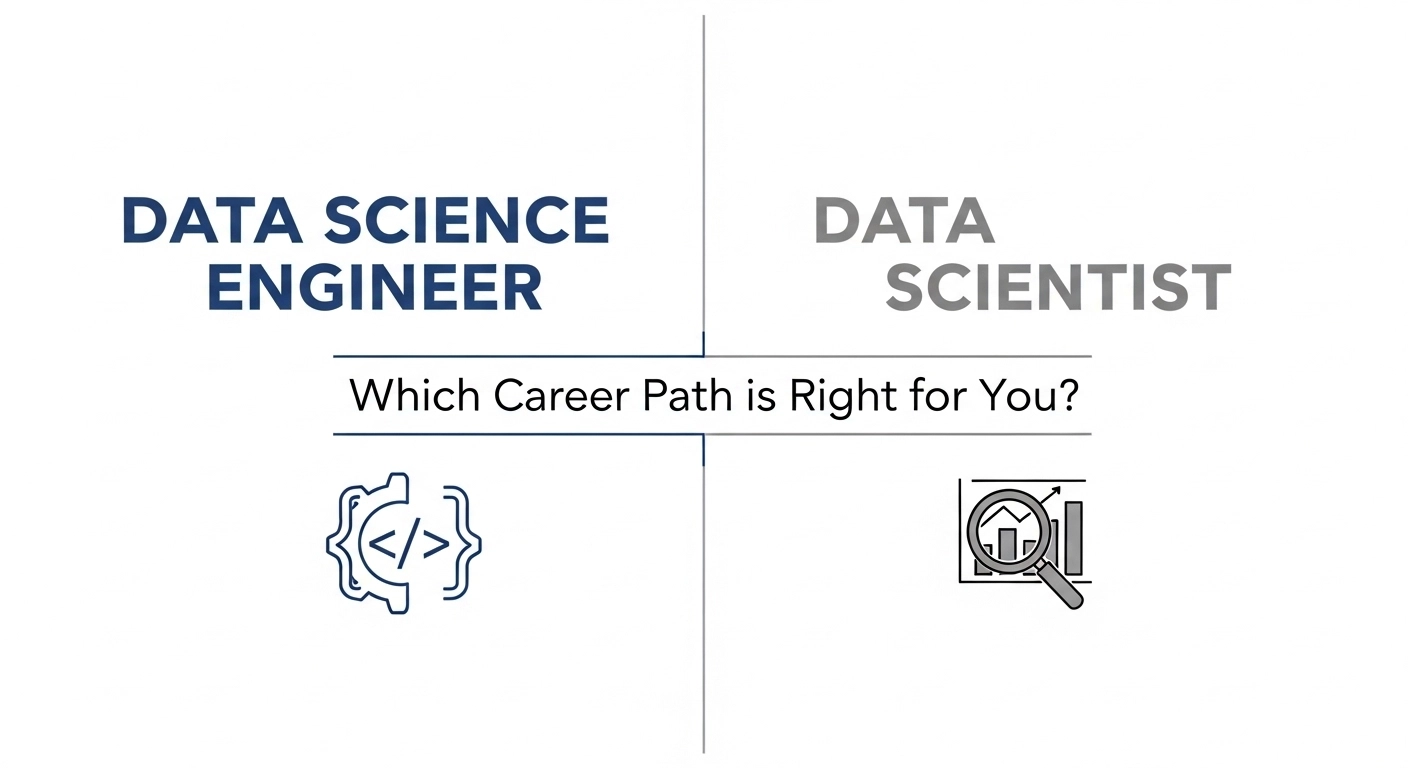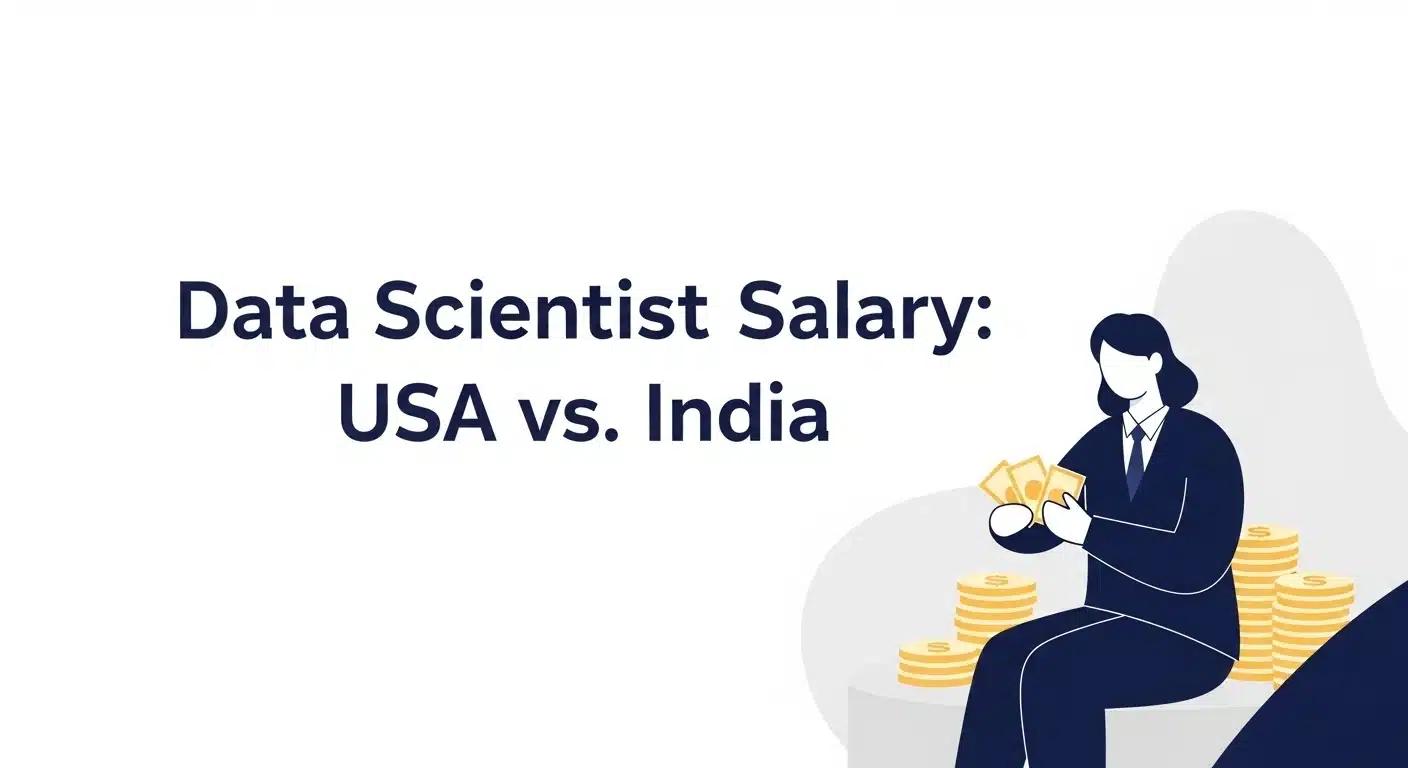The field of data science has become an important part of today's tech industry. This career is not only in high demand, but it also offers good growth and a hefty salary.
According to the US Bureau of Labor Statistics,data science roles are projected to grow by 36% between 2023 and 2033 – much faster than the average for all occupations. As technology evolves, the role of a data scientist is also changing. If you want to thrive in this field, it is important to constantly learn new things and update your skills.
Now companies do not just look at the degree, but whether you have practical skills or not. That is, whether you can solve real-world problems with your knowledge or not. This guide will tell you the necessary skills needed to succeed in this field, and will show a direct path to make your data science journey easier.
A successful data scientist's toolkit is a blend of non-technical and technical abilities. Both are equally important for a well-rounded professional.
Technical Skills
These are the foundational abilities required to perform the day-to-day tasks of a data scientist.

1. Programming Skills
A data scientist needs to be proficient in programming languages like Python and R.
- Python is the most commonly used language as it has libraries like NumPy, Pandas, and Scikit-learn that help process, analyze data, and create machine learning models.
- R is especially useful for statistical analysis and data visualization.
- SQL should also be known so that you can extract and manage data from the database.
2. Quantitative Analysis
In this, you use some mathematical methods to understand the data and work on it in depth, such as:
All these skills help you extract meaningful information from raw data.
3. Math & Statistics Knowledge
It is very important to have a strong math and statistics base.
- Linear Algebra
- Probability
- Statistical Theory
Knowledge of these is necessary to understand machine learning algorithms and create good models.
Statistics Course for Data Science and Analytics
Learn statistical methods crucial for data science, including regression and hypothesis testing, to extract valuable insights from data.
4. Data Visualization Skills
It is also an art to show data well, so that anyone can understand it even without technical knowledge.
- For this, tools like Tableau and Power BI should be available.
- Using libraries like Matplotlib and Seaborn in Python, you can create great charts and graphs.
Data Visualization using Power BI
Learn how to transform raw data into meaningful insights with Power BI. This course covers essential visualization techniques to help you create compelling, interactive dashboards and reports.
5. Linear Algebra & Multivariate Analysis
There are many algorithms in machine learning that are based on linear algebra - such as dimension reduction (PCA) and model optimization.
Multivariate Analysis means analyzing multiple variables simultaneously, so that the relationships between them can be understood. This is necessary when the data is very complex.
Non-Technical Skills for Data Scientists
These are the soft skills that set a great data scientist apart from a good one.
1. Data Intuition
This is the ability to quickly spot patterns and anomalies in data without analyzing it too deeply. This skill helps you quickly think about what information can be extracted from the data.
2. Iterative Design
Data science work is not done in one go. It requires repeated attempts - like trying a solution, seeing its results, and then improving it. This method is used to solve difficult and changing problems.
3. Statistical Thinking
This is not just about memorizing formulas. It means understanding the real thinking behind statistics so that you can make the right decisions and avoid wrong results.
4. Hacker’s Spirit
A good data scientist is always learning and experimenting. There should be a desire to adopt new tools, languages, and methods because this field changes very fast.
5. Creativity
Many times new and unique problems arise in data science. Here, the rote methods do not work. If you know how to think something new, then you can find good solutions to difficult questions.
6. Communication Skills
A data scientist should know how to explain complex data in a simple language – whether the person in front of you is technical or non-technical. It is very important to present the story derived from the data properly.
Read: How to Improve Communication Skills
7. Data-Driven Decision-Making
Decisions should be taken by looking at solid data, not by gut feelings or guesswork. This thinking makes a real data scientist different.
8. Being Organized
You should have good organizational skills to handle large data sets and multiple projects simultaneously. This will help you meet the deadline, the quality of the data will remain intact and the project will keep moving in the right direction.
Read: Top Data Science Projects
9. Teamwork
Data science is not a job that you can do alone. You will have to work with engineers, business experts, and other data professionals. That is why you should know how to coordinate well with others.
Read: Data Science Job Roles
10. Intellectual Curiosity & Passion
A good data scientist is always ready to learn something new. Reading research, trying new tools, and keeping yourself updated. These habits take your career forward and keep you in this field for a long time.
How to Learn these Skills
If you want to learn data science skills, then you have to make a plan and be active. You can increase your learning speed with the 5 easy steps given below:
- Do a certificate course
Data science certificate courses are available online. In these courses, you get tools used in the industry, basic to advanced concepts and practical projects. These projects can be included in your portfolio, which will be useful at the time of job. - Learn more
Data science is changing very fast. Therefore, you have to learn something new every day. For this, read good blogs (like Kaggle, Towards Data Science, Great Learning Data Science Blogs), research papers and technical articles. This will keep you informed about new technologies and best practices. - Be a part of the community
Connecting with others is more beneficial than reading alone. Join LinkedIn groups for data science, participate in online forums (like Stack Overflow, Reddit), and try to attend virtual or offline conferences occasionally. This will help you build a network and learn a lot from others. - Contribute to open source projects
You can participate in open source projects by visiting websites like GitHub. Here you will get a chance to work on real world projects. This will improve your coding skills and you will also be able to learn something by working with senior developers. Also, all this will count in your portfolio. - Focus on technical skills
Just reading theory will not work. You will also have to do practicals. Understand the concepts related to statistics, machine learning algorithms, and big data well. Then practice by working on different data sets. This will strengthen your technical base and also increase your confidence.
Also Read: Top Data Science Interview Questions and Answers
Advanced Data Science Skills to Future Proof Your Career
If you want to secure and advance your career in the future, then it is important to work on these advanced skills. These skills are no longer just optional, but are becoming necessary:
- Deep understanding of AI and machine learning
In today's time, just hearing about AI and ML is not enough - now it is necessary to have a good technical knowledge of them. You should have an understanding of certain algorithms such as Random Forest, Gradient Boosting, and Neural Networks. Also, you should know the tools and frameworks that use these algorithms, such as TensorFlow and PyTorch. - Big Data Technologies
Nowadays, data comes in very large quantities in big companies. In such a situation, knowledge of tools like Hadoop, Spark, and Kafka is important. These Big Data tools help you in distributed computing i.e. process data quickly by dividing it into pieces - so that you can work efficiently on big data. - Cloud Computing
Most data science work these days is done on cloud platforms. So you should be used to working on cloud systems like AWS (Amazon Web Services), Azure, and Google Cloud Platform (GCP). Cloud computing allows you to run projects scalably, quickly, and at a lower cost — no matter where the team is working from.
Top 5 Data Science Tools to Master
Python
Python is the most widely used language in the world of data science. Its biggest feature is its simple syntax and powerful libraries like NumPy, Pandas, Matplotlib, Scikit-learn, etc. With this, you can easily process, visualize, and perform machine learning on data.
Master Data Science with Python Course
Learn Data Science with Python in this comprehensive course! From data wrangling to machine learning, gain the expertise to turn raw data into actionable insights with hands-on practice.
R
R is also a programming language, which is especially known for statistical analysis and data visualization. It is preferred by academics and researchers because complex statistical work is done very well in it.
SQL
SQL means Structured Query Language. This tool is important for everyone who works with data. With this, you can extract, add, change, and manage data from the database. This skill is a must-have for working with relational databases (such as MySQL, PostgreSQL).
Master SQL and Database management with this SQL course: Practical training with guided projects, AI support, and expert instructors.
Learn SQL for data analytics in this course designed to help you turn raw data into clear insights. Master essential tools and techniques to make smarter, data-driven business choices.
Tableau and Power BI
Both these tools are used to show data visually. Through these, you can create such an interactive dashboard that the viewer immediately understands what the data is saying. Companies make important decisions by creating reports with these tools.
Data Visualization using Tableau
Learn how to use Tableau for data visualization and transform raw data into meaningful insights. With interactive charts and dashboards, you can easily explore trends and make informed decisions.
Hadoop
When there is a lot of data (big data), then common methods do not work. In such a situation, Hadoop comes in handy. It is a framework that helps to store and process very large data. Hadoop has become a basic requirement in big data projects.
Conclusion: How to future-proof your data science career
Continuous learning and innovation are key to becoming a successful data scientist. You should always be open to learning new things.
Work on not just technical skills, but also non-technical skills like communication and presentation.
Build a portfolio of great projects so your skills are clearly visible when you show them to others. Also, connect with other data science professionals, network, and stay active in the community.
If you’re ready to take the next step, explore our data science certification programs — where you can get the skills you need to succeed in a rapidly growing field.






